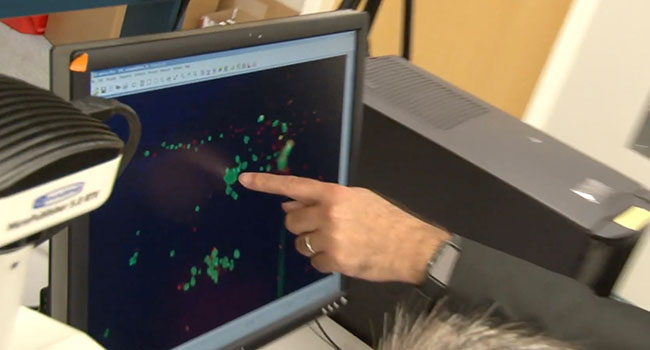Detecting Chance of Breast Cancer Relapse with a Liquid Biopsy
Jul 27, 2020 by CenTrial
A five-year clinical trial tasked with detecting certain types of breast cancer has concluded that using a "liquid biopsy" gives accurate results, eliminating the need for traditional painful and invasive biopsies. A liquid biopsy just requires a blood draw.
The study looked at circulating tumor DNA (ctDNA) and circulating tumor cells (CTC), cancers that leave material from the tumors in the bloodstream.
Cagri Savran, a professor of mechanical engineering at Purdue University created a device that could isolate the 3 or 4 CTC cells out of the billions found in a typical blood draw.
Testing was done to confirm the effectiveness of CTC detection on patients with triple-negative breast cancer.
“This is a particularly aggressive form of breast cancer,” said Milan Radovich, associate professor at the IU Simon Comprehensive Cancer Center, “and recurrence of the disease tends to be high. So after their chemotherapy, we took blood samples from the patients to see if the presence of the cells was an accurate marker of disease relapse.”
Radovich then sent the samples to Purdue to test them using their new technology. After five long years, their theory was proven right.
“These circulating markers were more predictive of relapse than any other commonly used clinical marker on the planet,” Radovich said. “It’s more predictive than tumor size, grade, stage, or lymph node status.”
Now patients with triple-negative breast cancer can with a simple blood draw, get definitive answers as to their relapse status, not having to worry if every headache or back pain signals a return of their cancer.
The device has been patented and Radovich and Savran have created a company, Savran Technologies Inc., to make it commercially available.
Learn more at
PURDUE.EDU
Next »
Whether you're healthy or have a medical condition
you can participate in a clinical trial.
Signup and be matched to trials near youThis free service will notify you of current and future clinical trial matches.
